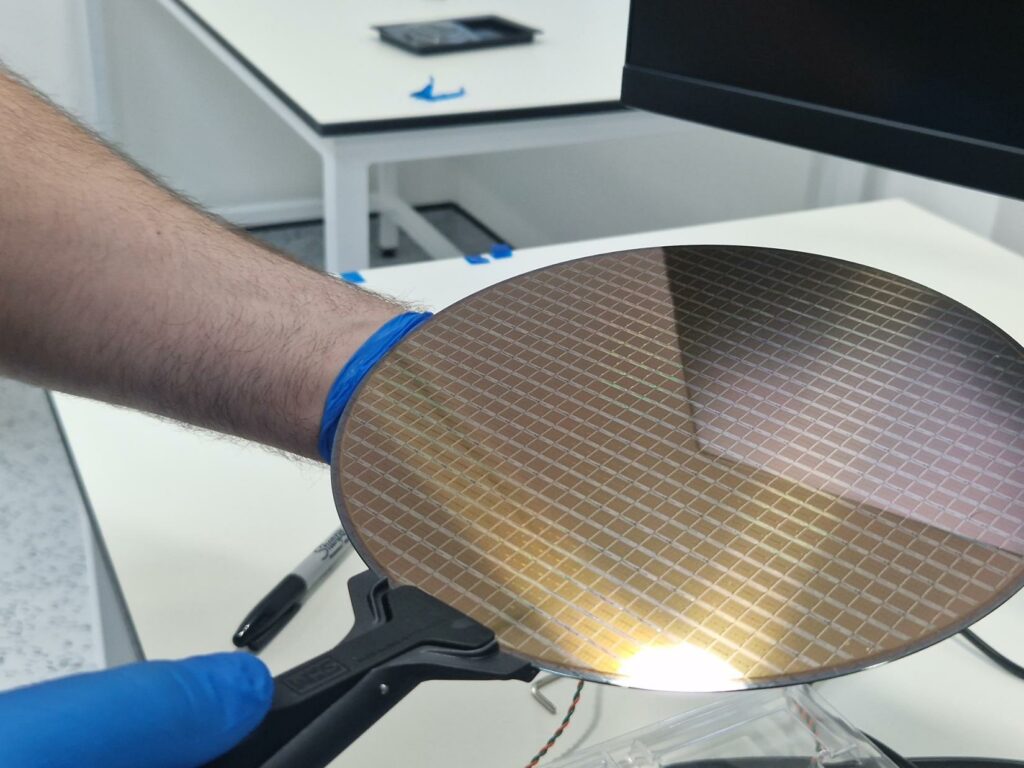Insider Brief
- The 2023 Autumn Statement unveiled a number of measures that will support the UK’s tech sector.
- The government is building on the £2.5 billion ten-year National Quantum Strategy.
- One of the key goals is to have UK-based quantum computers capable of running 1 trillion operations by 2035.
Chancellor Jeremy Hunt announced a number of measures that will support the UK’s tech sector in the 2023 Autumn Statement, including a major boost for the nation’s quantum sector — and a major challenge.
The statement acknowledged the government is exploring the use of quantum technologies in the public sector. While the reaction was generally positive, some members of UK’s ecosystem wanted to see more emphasis on post-quantum cybersecurity.
According to the statement: “The National Quantum Computing Centre is supporting government and industry to explore how quantum computing could be applied and HMG has launched a Catalyst fund bringing together quantum innovators and government departments to identify and develop near- and longer-term applications.”
Hunt said that the government is building on the £2.5 billion ten-year National Quantum Strategy by publishing a set of quantum missions, including a mission to have accessible, UK-based quantum computers capable of running 1 trillion operations by 2035, with operational and algorithmic advancements in critical economic sectors.

Other missions focus on quantum networks, medical applications, navigation, and sensors for infrastructure.
The Missions
According to the strategy, these missions, developed through collaborations among government, industry, and experts, aim to leverage quantum computing power, advanced navigation systems, precision sensors, and enhanced medical diagnostics to drive economic and societal benefits.
The strategy also plans to roll out the world’s most sophisticated quantum network, laying the groundwork for a future quantum internet. This network will amplify computing power, ensure nationwide connectivity, and foster early commercial opportunities, all while positioning the UK as a leader in quantum networking standards.
Healthcare is another priority, with every NHS Trust set to benefit from quantum sensing solutions by 2030. This initiative will focus on early diagnosis and advanced surgical procedures for conditions like dementia, epilepsy, and cancer. The goal is to integrate quantum-enabled products within the NHS, boosting the medical device industry and improving patient outcomes.
Quantum navigation systems are mentioned in the plan, with deployment on aircraft expected by 2030. These systems will offer unprecedented accuracy and resilience, independent of satellite signals, which is crucial for sectors like robotics and drones.
Finally, the strategy addresses critical infrastructure resilience. By 2030, mobile, networked quantum sensors will enhance situational awareness across transport, telecoms, energy, and defense sectors. This will facilitate the monitoring and maintenance of infrastructure, ensuring safety and efficiency.
Reactions
Technology and quantum technology leaders from across the nation are responding positively to the autumn statment.
Steve Brierley, Founder & CEO of Riverlane, said that the statement shows UK’s commitment to building a quantum ecosystem.
“The quantum computing mission announced today shows the scale of the UK ambition to maintain a lasting, critical role in the global quantum ecosystem,” said Brierley. “Now the industry has proven that building a quantum computer is possible, the next step is to develop the key technologies that can correct the billions of errors currently preventing these devices from becoming useful. It’s great to see the UK commit to becoming more focused in this direction, building on the key areas where it already has an advantage.”
Stuart Woods, Chief Operating and Strategy Officer at Quantum Exponential, called the missions “bold” and “visionary.”
“The missions are bold and contain some genuinely exciting and visionary thinking. The plan to implement quantum technology wide scale in the NHS to save money is particularly welcome and our expertise in medical quantum sensing is already world-class – this could greatly accelerate point-of-care diagnostics. There is a concern however that with the government’s financial commitment as it stands, it will struggle to translate visionary thinking to practical, implementable action. Based on the US’s 2022 CHIPS Act, adequately funding these missions could cost £25bn; the National Quantum Strategy Missions statement instead makes no financial commitment. While it’s encouraging to see a commitment from the government across the spectrum of quantum technologies, it is simply not practical for the UK to strive for ‘world-leading’ status in such a range of deep technologies with a £2.5bn, inadequately defined national quantum strategy.”
Ashley Montanaro, co-founder and CEO of Phasecraft, welcomed the continued commitment.
“The UK is a global leader in quantum computing and we’re delighted to see continued commitment from the UK Government to support the industry,” said Montanaro. “Among other applications, quantum computers will enable rapid and accurate modelling of novel materials that are vital for the clean energy revolution. The development of quantum algorithms and software is crucial if the hardware is to fulfil its true potential – breakthrough algorithms can reduce the cost of solving problems by factors of a million or more. We expect that efficient algorithms will enable the earliest quantum advantages to be realised in the next few years.”
Montanaro added, “The long-term support for work on quantum hardware, algorithms and software provided by the UK’s Quantum Computing Mission is essential to help the industry go beyond these early advantages and will enable quantum computers to deliver a host of scientific and technological breakthroughs of great benefit to society.”
Because quantum computers pose security risks for today’s encryption systems, the government should prioritize post-quantum cybersecurity.
Ali El Kaafarani, CEO of founder and CEO of Oxford University spinout and quantum-safe cryptography company PQShield said: “As the technical community had high hopes that the Chancellor’s speech would mention funding the field of quantum science, it’s great to see the government’s ambition to make the UK a leader in quantum technology addressed in the full Budget. It is crucial that the government does not forget that quantum computers pose a severe threat to our data and demonstrates its commitment to funding a secure quantum transition. A key action the UK government can take, alongside this investment, is encouraging the rapid adoption of the US Government’s National Institute of Standards and Technology (NIST) post-quantum cryptography standards, which will help scale the mass adoption of quantum computing in the future.”
Andersen Cheng, Co-founder and Chairman, of Post-Quantum, echoed the need for additional focus on PQC. “It’s been encouraging to see the government begin to place a greater emphasis on quantum in consecutive budgets. However, there is a clear imbalance at play – prioritising the computing elements, without giving as much thought to the very real security threats these machines pose. What is not being recognised is that quantum computers will not be superior to classical computers in every area – classical machines will continue to be used for the majority of tasks we undertake today. However, quantum computers are vastly superior when performing big analysis on small amounts of data – precisely the quality needed to break the encryption used to secure the UK’s entire digital infrastructure.”
Quantum Motion had a unique perspective on the statement. The company’s founders met with Jeremy Hunt and George Freeman MP at their labs and Downing Street this year to help determine the direction of the “Quantum Missions” and UK strategy.
CEO James Palles-Dimmock, said, “The UK is a global leader in quantum computing, with the world’s second highest number of quantum computing startups, providing a magnet for talent and investment. As a result, we’re well placed to challenge the dominance of markets like the US in creating the giant technology brands of the future. The Autumn Statement today is the second stage of a strategy created back in 2013, which provided the seeding to bring innovations out of universities, and will now provide funds to support early stage companies. The government consulted with the quantum industry to narrow down the moonshots so we can tackle the key challenges in building a useful quantum computer by 2035. The National Quantum Computing Centre (NQCC) is an important catalyst for this activity and will act as a showcase for the state-of-the-art in quantum computing.”
If you found this article to be informative, you can explore more current quantum news here, exclusives, interviews, and podcasts.



















